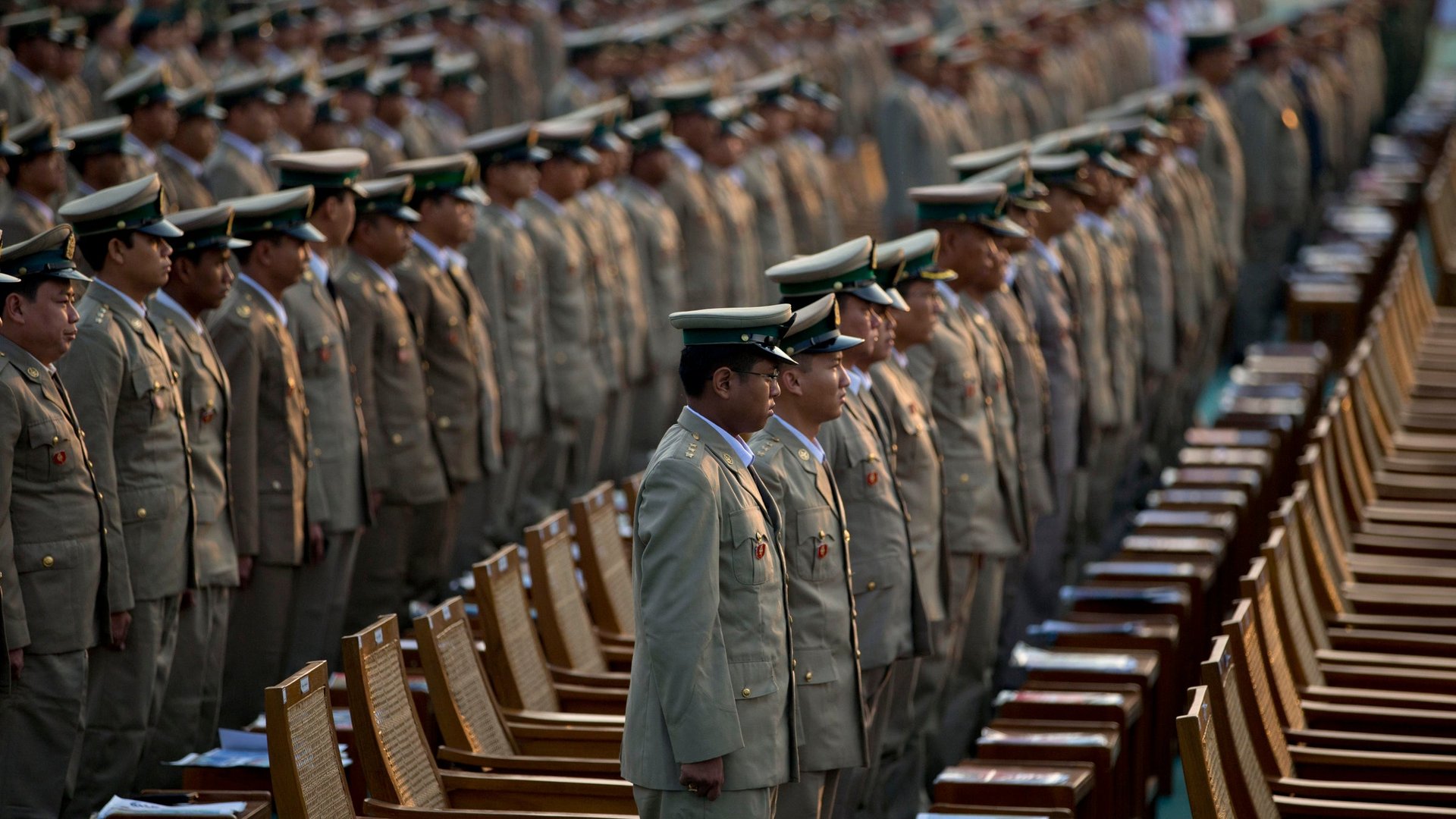Here’s a great idea for North Korea: Become the next Myanmar
North Korea has told the US what it wants to return to the bargaining table, and while its demands are totally infeasible, the statement may be a sign that leader Kim Jung-un’s spate of nuclear brinksmanship is abating.


North Korea has told the US what it wants to return to the bargaining table, and while its demands are totally infeasible, the statement may be a sign that leader Kim Jung-un’s spate of nuclear brinksmanship is abating.
So let’s get way ahead of ourselves: Is there a good outcome for the country, which is among the most economically challenged in the world? The answer may be found in another secretive international pariah state with a record of human rights abuses—Myanmar, neé Burma. The country’s recent progress following democratic elections spurred global interest in developing the nation’s economy (and making a buck in the process). Companies from around the globe are heading to Yangon with business on their mind. Meanwhile, governments and NGOs are opening up the aid spigot.
US officials are enthusiastic about this model, with White House national security adviser Tom Donilon using America’s burgeoning relationship with Myanmar as a demonstration that the US is happy to make (lucrative) friends out of old enemies.
But what about other stakeholders? China was Myanmar’s main economic partner before its opening, just as it is with North Korea today. More friendliness with the international community hasn’t necessarily been great for China in the short-term. The Yangon government cancelled a major Chinese dam-building project in an attempt to assert some independence. But some in China are prepared to take a long view of Myanmar’s opening, if this piece from People’s Daily senior editor Ding Gang is any evidence. Gang argues that a more open Myanmar will benefit China and the region, and that same thing could happen in northeast Asia:
After seeing North Korea from the example of Myanmar, China should take actions. One of the important moves is to encourage North Korea to step on an open road, and aid North Korea to improve the living conditions of its people.
As for investment of Chinese enterprises in North Korea, these companies should take into consideration that North Korea may also seek to strike a balance, much as Myanmar is doing.
For sure, North Korea with an open society, and the involvement of the US, South Korea and Japan will bring about troubles and problems for China. But these fears will not be conducive to China’s progress when dealing with these powers.
South Koreans can see the benefits, too, with Inje University Professor Kim Yeon-chul arguing that North Korea’s autocratic leadership should look to Myanmar’s junta for a lesson. The big factor in any opening isn’t just denuclearization, but whether or not the powers that be will relinquish some of their clout.
Burma’s military leadership, whatever their past sins, remain important stakeholders in the country’s transformation. (One general remains the country’s president.) That alone could reassure North Korea’s military that a transition away from autocracy doesn’t mean personal ruin, and however unsavory, it may be North Korea’s main hope for a return to normalization.